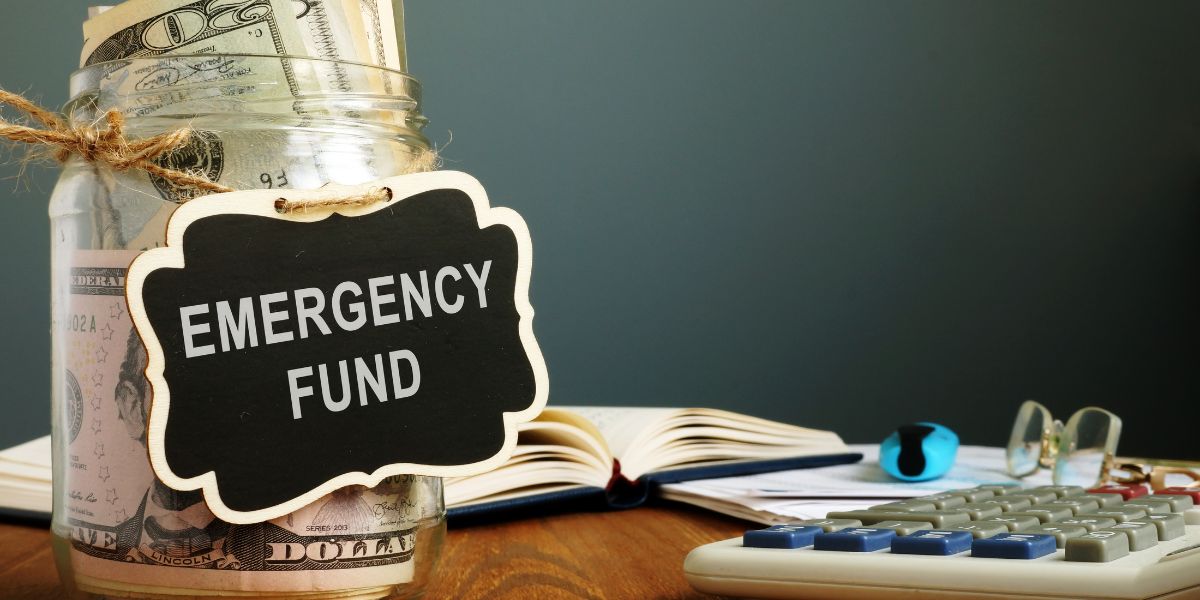You have all of your monthly essentials listed in your budget. You have your rent, your insurance, your utility bills, your groceries and your transportation costs. What else could you possibly need to put in there?
Well, if you want your budget to be more effective, you’ll want to add these five often-forgotten categories to it.
1. Fun Money
“Fun money” is for expenses that bring you personal enjoyment and fulfillment, like hobbies or going out with friends. Sometimes people leave “fun money” out of their budgets because they deem it as non-essential. They think it’s wiser to skip the category and pocket the savings. This is actually a big budgeting mistake.
While you can go overboard when you prioritize “fun money” over practical expenses like groceries and utility bills, the solution isn’t to stop funding this category completely. This will make you miserable quickly and make it far more tempting to ignore your budget altogether. You might go on a complete spending binge to rebel against the strict guideline you punished yourself with.
You’ll be far more likely to stick to your budget and spend responsibly when you set aside some space for “fun.”
2. Special Occasions
You need to consider expenses related to birthdays, anniversaries, weddings, engagement parties, baby showers and other special occasions you will be invited to throughout the year. You’ll want to budget for this so you can afford to participate and not attend these events empty-handed.
3. Holidays
In the same vein, you’ll want to be prepared for expenses related to holidays, especially if you like to go all-out on these dates. Maybe your family is really excited about Halloween. So, you’ll need to think about expenses like candy to hand out to trick-or-treaters. You’ll also want funds for decorations, costumes, and tickets for events like haunted houses and horror movie marathons.
Consider what holiday traditions mean the most to you when creating this category.
4. Annual Expenses
Not all expenses will fit within the monthly routine of your budget. Some will only show up once a year. You’ll still need to set aside funds for them, or else you won’t be able to afford these annual expenses when the time comes.
What are some examples of annual expenses?
- Property taxes
- Annual insurance premiums
- Annual subscription fees (for example, for computer software)
- Annual maintenance services (for example, chimney cleaning)
- Annual medical treatments (for example, annual eye exams)
5. Emergency Expenses
You never know when an emergency expense is going to show up. You don’t know when your car will get a flat tire and need to be towed to the nearest mechanic for a spare. You don’t know when your pet will get mysteriously sick and must be rushed to the veterinary clinic for treatment. You don’t know when your AC unit will break down and need last-minute repairs. You can’t predict the unpredictable. But you can prepare for it.
With the help of an emergency fund, you can prepare for these urgent and unpredictable expenses whenever they appear. If you don’t have an emergency fund yet, you need to start building one. Open up a separate savings account for the fund. Then, add a category for emergency savings in your budget. Transfer those savings every single month into the fund until it becomes a dependable safety net.
With an emergency fund, you might be able to pay off an urgent expense whenever you face one. You’ll have to consider a different solution than your savings. You could go to a website like CreditFresh to apply for a personal line of credit loan. With an approved personal line of credit, you might be able to request a withdrawal within your credit limit and have it deposited into your bank account. Then you could use those temporary funds to resolve your emergency quickly. After that, you can focus on repayments.
6. Household Items
When preparing for a monthly budget list, we usually consider the household items in a minor category while it is strictly not. Household items such as detergent, paper towels, tissue papers, toothpaste, shampoo, face wash, soap, sanitizer, etc., are vital and the most commonly used household products which, although they look smaller but take on a huge part of your monthly budget list. Not giving them their fair share would surprise you at the end when you will have to accommodate these expenses at the end of the month. Keep an eye on the household products which are running low so you may stock them up before getting low on your budget.
7. Household Maintenance
House maintenance is yet another significant type of expense that we usually forget at the time of creating budgeting categories. Adding these expenses to your budget list is important if you plan to hire a professional cleaning service for household maintenance and upkeep. Similarly, taking your car to the garage for carwash service, furniture cleaning, repairing damaged appliances, or any other unexpected maintenance expense might cost you more than expected. So, skipping any of these household maintenance expenses while creating your budget list is a big mistake that you should avoid.
8. Guests
We neglect this expense while creating a budget list. You probably have some family members or friends coming over to see you, and you must be prepared to welcome them without worrying about the expenses. Putting a small fraction of money aside every month until your guests arrive not only keeps you stress-free, but you will also be able to spend quality time with your loved ones. From taking them around the city to bringing them their favorite food to doing extra grocery for them – you are good to go if you have saved a small amount on the side when preparing your budget.
9. Charity
Those who believe in the power of giving stay focused rather than loading themselves with the burden of their desires. Generosity never gets wasted, bringing long-lasting fruits that only a giver can understand. Reserving 8 to 10% of your income in your budget, specifically for charity, helps you stay connected to underprivileged people and fulfill their needs as much as possible. Whether you want to give it to an individual or a charity, make sure to mention it in your monthly budget.
10. Savings
Savings is one of the essential budget categories that stays with you and increases if you consistently follow a specific savings pattern. Savings and investments are important to ensure financial stability in times of need. Not only does your saved amount save you in the time of emergency need, but if you have taken a debt, your savings can help to pay it back. You can do many things with your savings and even start a small business or buy a new home. Set a target for an amount to be saved, and once you have achieved it, gradually increase the target to create your hard-earned wealth.
Conclusion
So, if you are planning to create a budget, take some time to relax as you are going to dive into a long venture where you have to balance the savings and expenses proportions. It takes a lot of work to manage expenses intellectually. You will fail multiple times to cope with your budget, but it’s all about gradually making a sustainable life where your essential expenses meet your wishes.
Do you need any of the categories mentioned above in your budget? It’s time to squeeze them in.
Frequently Asked Questions (FAQs)
What should budget categories be?
Utilities, Transportation, savings, food, grocery, traveling, savings, mortgage, and emergency funds are some of the important budget categories that one should not forget when preparing the budget.
What is budget and its types?
A budget categorizes your expenses based on your income for a specific period. Based on the accommodation of various expenses, there are different types of budgets, including operating budget, master budget, cash budget, incremental budget, activity-based budget, and static budget to name a few others.
What is a functional budget?
A functional budget is associated with the various functional chores of a business such as sales, stocking up on inventory, purchasing material, labor, etc.
What is the best method of budgeting?
The best and most effective budgeting method is based on the 50/30/20 rule in which 50% of income is reserved for essential needs, 30% for basic to lavish wants, and 20% for savings.
How many budget formats are there?
There are four basic budgeting formats: incremental, value-proposition, activity-based, and zero-based.
Why is a budget important?
Budgeting is very important to record your expenses, align your needs and wants within a specific income, increase your savings, prepare for emergencies, meet long-term financial goals, and get financial stability.
What is a master budget?
Master Budget is crucial to evaluate the business performance as this budget encompasses low-level expenses of a business. It comprises of capital investment, profits, sales, expenses, and cash management for a specified time limit.
What is budget control?
Budget control helps managers prepare a plan covering their operative and financial activities, including cost management, cash flow, etc. With the help of a budgeting control system, you may evaluate your business performance within a specific budget, analyze the limitations, and take important steps for the betterment of the organization.
What are the most easily forgotten expenses?
When creating a long list of expenses to manage within the budget, people usually overlook a few significant expenses, such as pest control, gifting on special occasions, annual subscriptions, home maintenance, and annual checkups.

John Davis is a passionate content writer with a knack for crafting engaging narratives across various subjects. With a keen eye for detail and a love for storytelling, John brings ideas to life through the power of words. His dedication to delivering high-quality and informative content has made him a trusted voice in the digital realm. When he’s not at his desk, you’ll find John exploring new hobbies and seeking inspiration in the world around him.














Loading…